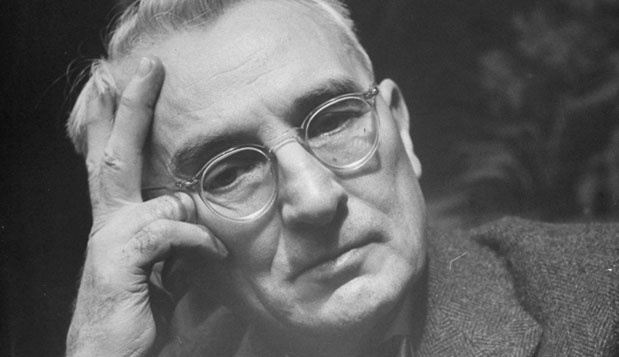
This post was originally published on this site
Students taking self-improvement courses at Dale Carnegie spend most of their time interacting in memory exercises or giving impromptu speeches before a 30-capita peer group per session, over the course of two to twelve weeks depending on the program.
That was until Dale Carnegie offices abroad reported news of lockdown measures in January 2020, two months before the World Health Organization declared COVID-19 to be a global pandemic.
“We were talking with our teams based in China about what was happening over there. That’s when we realized that we had to change our business model –– immediately,” seven-year CEO Joe Hart says.
With offices in 82 countries offering courses in 36 languages, Hart and his international counterparts got to work.
While digging for a solution, the North American branch discovered a ten-year project, pre-dating Hart’s reign, that had been assimilating 17 of the training programs to an online format simply to keep up with the times.
ADVERTISEMENT
From January through March, these archival sessions would serve as a template for the rollout of online, live-training classes designed to deliver highly effective leadership skills through a screen. During this time, over 1,000 trainers became certified to teach the program worldwide, Hart says.
“That was really a game changer for us,” Hart says. “We’re on track to come out of the pandemic very strong.”
The company has since been investing in its digital assets, remodeling its training program to a multi-pronged approach: in-person, remote and hybrid sessions. Hart says that this not only embraces a current, “new normal” circumstance, but offers a competitive edge that otherwise would not have been entertained.
In a way, it’s not really a surprise –– this isn’t Dale Carnegie’s first rodeo. And by rodeo, we mean pandemic.
Dale Carnegie training courses began in 1912 with the ‘Man of Influence’ himself, who, at the time, was an out-of-work actor living in New York, looking for a meal ticket. While boarding at the Harlem YMCA, Carnegie convinced a manager of the facility to allow him to instruct a night class on public speaking tailored to the needs of everyday businesspeople –– interview skills, how to persuade with presentations and guidance on forging positive relationships.
Two years in, Carnegie moved the production to its own facility, the Dale Carnegie Institute, to accommodate growing class sizes.
Still in practice today, Carnegie’s approach overrides fear with emotional intellect and taps into a universal desire, perpetually in demand –– self-confidence.
Personal growth courses are offered in a variety specialized to six core areas –– leadership, organizational development, people skills, communication, sales, and customer service –– for professionals at every level.
Carnegie’s tricks of the trade were condensed into 30 principles listed in his 1936 all-time bestseller, How to Win Friends and Influence People, which has sold over 30 million copies to date.
“Those ideas, those principles haven’t changed. People still need to feel respected, appreciated and listened to,” says Hart, whose father handed him the book while he was a teenager. “What is different now is the way in which those things happen.”
In a remarkably meta way, Hart credits Carnegie’s principles for championing the company through a worst-case-scenario turned into reality.
The principles his team is built upon –– don’t criticize, condemn or complain; give honest, sincere, appreciation; become genuinely interested in other people; try honestly to see things from the other person’s point of view –– are the same ones that carried them through a tumultuous transitional period.
“We can be so quick to forget how scary it was on some of those darkest days,” Hart said. “We all had to dig very deep from a personal resilience standpoint to keep positive.”
The first year of the COVID-19 outbreak resulted in the permanent closure of 200,000 establishments –– mostly individual, small businesses –– above historic levels, according to the Federal Reserve. Iconic retailers and travel corporations, such as JC Penny, GNC, 24 Hour Fitness, Hertz and Virgin Atlantic, filed for bankruptcy amid pandemic pains.
Meanwhile, the 110-year-old company has endured the 1918 Influenza pandemic, world wars, the Great Depression and every recession thereafter.
“[COVID-19] was a brutal situation,” Hart says. “Not a lot of companies have survived what we’ve survived –– that’s certainly a part of our message.”
As corporations begin their recovery in 2022 and the ongoing remote-work wars wage onward, perhaps it’s a message some executives should consider eavesdropping.
Nationwide trends like the Great Resignation, where a record number of over 47 million Americans voluntarily quit their job, are not subsiding anytime soon.
The Bureau of Labor Statistics reported a new series high of 4.5 million Americans that quit their jobs in March, while the number of available positions increased from 11.3 million to 11.5 million in the same period, showing trivial change since.
Global consultancy firm PwC has it that one in five employees will quit their job in 2022. According to their survey of 52,000 workers across 44 countries and territories, participants cited low salaries and lack of job fulfillment as the top two reasons for leaving.
“Want to know the number one reason why people quit their jobs?” Hart questions a group of interns in a retelling of a talk he gave at a Los Angeles venture fund last week.
The group calls out valid reasons for leave, such as hours to the brink of burnout, lowballed wages and so on.
“Lack of appreciation,” he answers, citing the fractured interpersonal relationship between a worker and their supervisor. “It’s these very small things that can make a huge difference: if you don’t feel valued or respected –– then you don’t want to be there.”

Seemingly simple concepts, like empathy, which is often classified under “soft skills,” are common knowledge but not common practice, Hart says. Disagreeing with someone in an agreeable way, selling your idea to someone so well that they think it’s theirs –– essentially, business Jedi-mind tricks –– are classic industry arts.
But what may sound like a manipulative ruse to an outsider comes from noble roots in Hart’s interpretation of Carnegie’s legacy.
“Our principles really are about trying to get people to honor somebody else,” Hart says.
As the American workforce sits in self-examination, managing drastic changes to facilitate a purposeful connection within their career, companies reckon with rifts in their office culture.
“The pandemic has shifted people’s views of what’s important,” Hart says. “If companies want to keep their talent, they need to invest in their people –– and I think that’s a good thing.”
Watch for Hart’s book, Take Command, which aims to place Dale Carnegie principles in the Digital Age and introduce personal development concepts to Gen Z audiences via testimonials. Co-authored by Carnegie’s grandson, Michael Crom, the book hits shelves on Jan. 10.
Additionally, Hart explores what leadership means today with other industry experts on his podcast, Take Command: A Dale Carnegie Podcast.
Copyright © 2022 California Business Journal. All Rights Reserved.
This article was edited and published by Rick Weinberg, California Business Journal’s Founder, Publisher and Editor-in-Chief. Click here for Rick Weinberg’s biography.
For testimonials on the impact of California Business Journal articles, click here.
Contact us if you’d like an article written on your business: Rick@CalBizJournal.com / 949-648-3815








